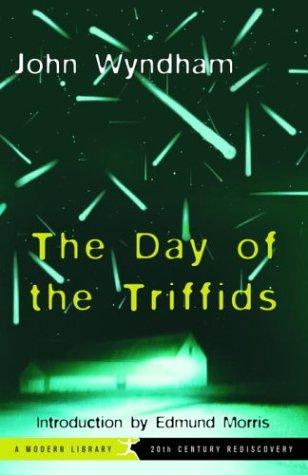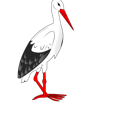When Bill Masen wakes up blindfolded in hospital there is a bitter irony in his situation. Carefully removing his bandages, he realizes that he is the only person who can see: everyone else, doctors and patients alike, have been blinded by a meteor shower. Now, with civilization in chaos, the triffids - huge, venomous, large-rooted plants able to 'walk', feeding on human flesh - can have their day.The Day of the Triffids, published in 1951, expresses many of the political concerns of its time: the Cold War, the fear of biological experimentation and the man-made apocalypse. However, with its terrifyingly believable insights into the genetic modification of plants, the book is more relevant today than ever before.
[Comment by Liz Jensen on The Guardian][1]:
As a teenager, one of my favourite haunts was Oxford's Botanical Gardens. I'd head straight for the vast heated greenhouses, where I'd pity my adolescent plight, chain-smoke, and glory in the insane vegetation that burgeoned there. The more rampant, brutally spiked, poisonous, or cruel to insects a plant was, the more it appealed to me. I'd shove my butts into their root systems. They could take it. My librarian mother disapproved mightily of the fags but when under interrogation I confessed where I'd been hanging out – hardly Sodom and Gomorrah – she spotted a literary opportunity, and slid John Wyndham's The Day of the Triffids my way. I read it in one sitting, fizzing with the excitement of recognition. I knew the triffids already: I'd spent long hours in the jungle with them, exchanging gases. Wyndham loved to address the question that triggers every invented world: the great "What if . . ." What if a carnivorous, travelling, communicating, poison-spitting oil-rich plant, harvested in Britain as biofuel, broke loose after a mysterious "comet-shower" blinded most of the population? That's the scenario faced by triffid-expert Bill Masen, who finds himself a sighted man in a sightless nation. Cataclysmic change established, cue a magnificent chain reaction of experimental science, physical and political crisis, moral dilemmas, new hierarchies, and hints of a new world order. Although the repercussions of an unprecedented crisis and Masen's personal journey through the new wilderness form the backbone of the story, it's the triffids that root themselves most firmly in the reader's memory. Wyndham described them botanically, but he left enough room for the reader's imagination to take over. The result being that everyone who reads The Day of the Triffids creates, in their mind's eye, their own version of fiction's most iconic plant. Mine germinated in an Oxford greenhouse, in a cloud of cigarette smoke.
[1]: www.guardian.co.uk/books/2011/may/14/science-fiction-authors-choice





